Pregnancy and childbirth are life-changing experiences that come with a host of expected physical and emotional changes. However, many women encounter surprising side effects they weren’t prepared for. In a recent discussion, 30 women shared unexpected post-birth challenges they faced. From physical discomfort to emotional struggles, here’s what they experienced, along with expert recommendations on treatments, supplements, and medical services to manage these issues and support their overall health. It’s crucial to address these concerns with proper care to ensure long-term health and recovery after childbirth.
#1 Postpartum Hair Loss
Many women notice significant hair shedding a few months after childbirth. This condition, called postpartum alopecia, occurs due to hormonal fluctuations.
Treatment & Supplements:
- Biotin and Vitamin D: Promote hair regrowth.
- Minoxidil (under a doctor’s supervision).
- Gentle, sulfate-free shampoos can also reduce breakage.
#2 Pelvic Pain and Weakness
Pelvic floor muscles can weaken during delivery, leading to discomfort, incontinence, or prolapse.
Medical Services:
- Pelvic floor physical therapy to strengthen muscles.
- In severe cases, surgery may be required.
Supplements:
- Collagen and magnesium for tissue repair.
Leave a Reply
GIPHY App Key not set. Please check settings
#3 Vaginal Dryness
#4 Chronic Fatigue
Sleep deprivation and hormonal imbalances can lead to persistent exhaustion.
Supplements:
- Iron for postpartum anemia.
- Vitamin B12 to boost energy.
Medical Services:
Consult a doctor to rule out postpartum thyroiditis or depression.
Leave a Reply
GIPHY App Key not set. Please check settings
#5 Mood Swings and Postpartum Depression
The emotional rollercoaster after birth can range from mild “baby blues” to severe depression.
Treatment:
- Cognitive Behavioral Therapy (CBT) or counseling.
- SSRIs (e.g., sertraline) for moderate to severe depression (under a doctor’s care).
Supplements:
- Omega-3 fatty acids for mood stabilization.
Leave a Reply
GIPHY App Key not set. Please check settings
#6 Diastasis Recti (Abdominal Separation)
Many women experience a separation of abdominal muscles, leading to a bulging belly or back pain.
Medical Services:
- Postnatal physiotherapy.
- In severe cases, corrective surgery.
Exercises:
Gentle core-strengthening routines like planks or pelvic tilts.
Leave a Reply
GIPHY App Key not set. Please check settings
#7 Hemorrhoids
Pushing during labor can lead to swollen veins in the rectum.
Treatment:
- Over-the-counter creams like Preparation H.
- Sitz baths with warm water and Epsom salts.
Dietary Recommendations:
- High-fiber foods and stool softeners to ease bowel movements.
Leave a Reply
GIPHY App Key not set. Please check settings
#8 Joint Pain and Swelling
Hormonal changes and weight gain may cause joint discomfort or swelling, especially in the wrists or knees.
Supplements:
- Glucosamine and chondroitin for joint support.
- Anti-inflammatory foods (turmeric, omega-3s).
Medical Services:
- Consult a rheumatologist if symptoms persist.
Leave a Reply
GIPHY App Key not set. Please check settings
#9 Breastfeeding Challenges
Issues such as mastitis, clogged ducts, or low milk supply are common.
Treatment:
- Antibiotics for mastitis (e.g., amoxicillin).
- Warm compresses and massage for clogged ducts.
Supplements:
- Fenugreek and moringa to boost milk production.
Leave a Reply
GIPHY App Key not set. Please check settings
#10 Postpartum Anxiety
#11 Night Sweats
Postpartum night sweats are a common side effect due to hormonal fluctuations. These intense sweats, especially during the night, often occur in the first few weeks or months after childbirth.
Treatment:
- Wearing breathable fabrics like cotton and using light sheets can help manage sweating.
- Staying hydrated throughout the day.
Supplements:
- Magnesium to regulate body temperature.
Leave a Reply
GIPHY App Key not set. Please check settings
#12 Incontinence
Many women experience urinary incontinence, especially when coughing, sneezing, or exercising, due to weakened pelvic muscles.
Medical Services:
- Pelvic floor physical therapy is essential to strengthen the muscles.
- In severe cases, surgery or medical devices like vaginal pessaries may be required.
Supplements:
- Saw Palmetto may help support bladder function.
Leave a Reply
GIPHY App Key not set. Please check settings
#13 Skin Changes
Some women notice skin changes, like increased pigmentation (melasma) or acne.
Treatment:
- Use gentle skincare products for acne-prone skin.
- Sunscreen to prevent melasma from worsening.
Supplements:
- Vitamin C for skin repair.
- Zinc to manage acne and inflammation.
Leave a Reply
GIPHY App Key not set. Please check settings
#14 Changes in Vision
Some women experience blurry vision or dry eyes post-birth, likely due to hormonal shifts and fluid changes.
Medical Services:
- An eye exam can rule out more serious conditions like postpartum preeclampsia or a vision disorder.
Treatment:
- Artificial tears for dry eyes.
Leave a Reply
GIPHY App Key not set. Please check settings
#15 Dry Skin or Eczema
After childbirth, many women find that their skin becomes dry, flaky, or irritated due to hormone fluctuations and the stress of pregnancy.
Treatment:
- Hydrating lotions or creams with ceramides.
- Prescription corticosteroid creams for severe eczema.
Supplements:
- Omega-3 fatty acids for skin hydration.
Leave a Reply
GIPHY App Key not set. Please check settings
#16 Constipation
After childbirth, hormonal changes and the physical strain of labor can lead to constipation.
Treatment:
- Stool softeners like docusate sodium can help.
- Fiber-rich foods and plenty of water to keep bowel movements regular.
Supplements:
- Psyllium husk or flaxseed for digestive health.
Leave a Reply
GIPHY App Key not set. Please check settings
#17 Swollen Feet and Ankles
Fluid retention and the physical strain of pregnancy can lead to swollen feet and ankles in the postpartum period.
Treatment:
- Elevating feet when resting.
- Compression socks to reduce swelling.
Supplements:
- Potassium to balance fluid retention.
- Magnesium for improved circulation.
Leave a Reply
GIPHY App Key not set. Please check settings
#18 Postpartum Sweating
Excessive sweating is common for the first few weeks postpartum, as the body expels excess fluids from pregnancy.
Treatment:
- Staying cool and wearing light clothing.
- Deodorants or natural antiperspirants.
Supplements:
- Vitamin B complex for energy and hormone regulation.
Leave a Reply
GIPHY App Key not set. Please check settings
#19 Breast Pain or Sensitivity
Many women experience sore breasts after birth due to milk production and breastfeeding. This can include pain from engorgement or latch issues.
Treatment:
- Cold compresses for engorgement.
- Lanolin cream for cracked nipples.
Supplements:
- Vitamin E for skin healing.
- Choline to support breast tissue health.
Leave a Reply
GIPHY App Key not set. Please check settings
#20 Food Cravings or Appetite Changes
Hormonal changes after birth can cause cravings for certain foods or lead to a decrease in appetite.
Dietary Tips:
- Focus on nutrient-dense, whole foods to support recovery.
- Small, frequent meals to manage changes in appetite.
Supplements:
- Multivitamins to ensure nutritional balance during fluctuations in eating habits.
Leave a Reply
GIPHY App Key not set. Please check settings
This post was created with our nice and easy submission form. Create your post!


























GIPHY App Key not set. Please check settings